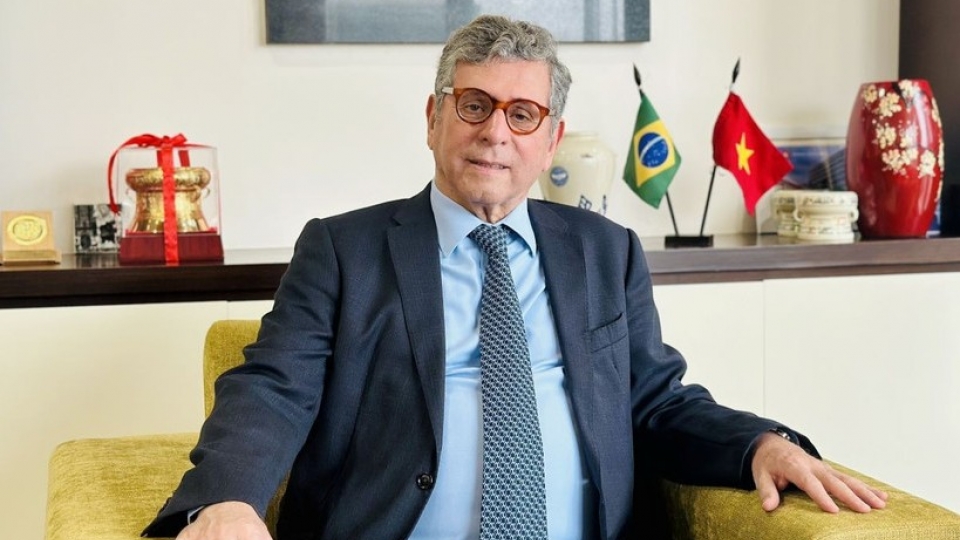BRICS partner-country status boosts Vietnam’s position in global arena: Argentina
Vietnam’s official status as a partner country of BRICS - a bloc of major emerging economies - marks a strategically important move that helps enhance the country's position and amplify its voice in the international arena, said Prof. Ezequiel Ramoneda, President of the Latin American Association for Asian and African Studies (ALADAA) in Argentina.

In an interview granted to the Vietnam News Agency, Prof. Ramoneda noted that the expansion of BRICS membership has been one of the group’s most significant developments in recent times.
From its five founding members, the number of official and partner countries has quadrupled in just one year, presenting an opportunity to broaden political dialogue, enhance mutual understanding, and promote coordination among countries on key international issues, he said.
Becoming a partner country of BRICS is a step that fully aligns with the foreign policy of independence, self-reliance, multilateralisation, and diversification of international relations that the country has steadfastly pursued for nearly four decades, the expert said.
He added that this decision reflects Vietnam’s strong determination, under the leadership of the Communist Party of Vietnam, to be a trusted partner and active contributor to the international community; and reaffirms Vietnam’s commitment to a fairer and more effective multilateralism.
Ramoneda noted that Vietnam’s presence will contribute to increasing BRICS’ credibility, thanks to the country’s growing role, international position, and longstanding cooperation with developing nations, especially in Southeast Asia, Africa, and Latin America.
As a prominent representative of Southeast Asia, Vietnam also plays an important role in advancing the bloc’s regional cooperation agenda that it is currently prioritising, he said.
Commenting on the potential for enhanced cooperation between BRICS and the Association of Southeast Asian Nations (ASEAN), Ramoneda said the cooperation process between the two mechanisms still faces significant institutional hurdles.
However, Ramoneda, who also serves as Coordinator of the Centre for Southeast Asian Studies (CESEA) at the Institute of International Relations of the National University of La Plata of Argentina, said leaders of the two sides have demonstrated strong political will to advance regional and global cooperation.
Additionally, since 2012, many ASEAN summits have welcomed the participation of leaders from BRICS member states, including China, Russia, India, and Brazil. Indonesia, now a BRICS member, has held the ASEAN Chairmanship in 2000, 2022, and 2023. Malaysia, the current ASEAN Chair, is also an official BRICS partner country.
Ramoneda observed that despite institutional differences, BRICS and ASEAN can complement each other, working toward a multipolar and fairer international order that better serves the interests of developing countries.




